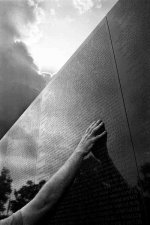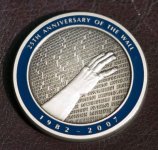Roger,
Always remember your heart is the key to everything, and it will guide you to things no person can take away from you. The reason why I ever picked up a camera is because my heart wanted a medium where I could be more efficient in expressing to the world how I saw it . At the time, I was an artist using painting and drawing in college (I also was a political science student as well who had great affection to those who were less fortunate in this world caused by many different circumstances). This caused me to make many decisions that had nothing to do with money, and in the end, they were the most important decisions I ever made to establish my identity as a photographer. I do commercial work, and teach at a local school in Bethlehem Pennsylvania, but it was the heart that I could tell the world who I was. No school or organization had anything to do with that. There was a day my heart told me to photograph the Vietnam Veterans Memorial. I did it, not paid, and I reacted to the "moment". I mullled over my results for months, putting them away. I then went to a bookstore to see a book of photos taken of that memorial only to realize I had something special. I sent it to the Vietnam Veterans Memorial Fund , and they fell in love with it. That was in 1994. In 2007, they issued a 25th Anneversary coin with my photo on it. Did I ever ask for money? NO! Honor was enough. Nobody can take that away, and it would not matter what your background would be. It is yours, and it is FOREVER! The beauty is you can use a thing like this to market ALL of your business and intellectual interests!!! I hope this inspired and helped you and anyone else reading this. You are what you are, and do not let anyonne pass judgement on you.



